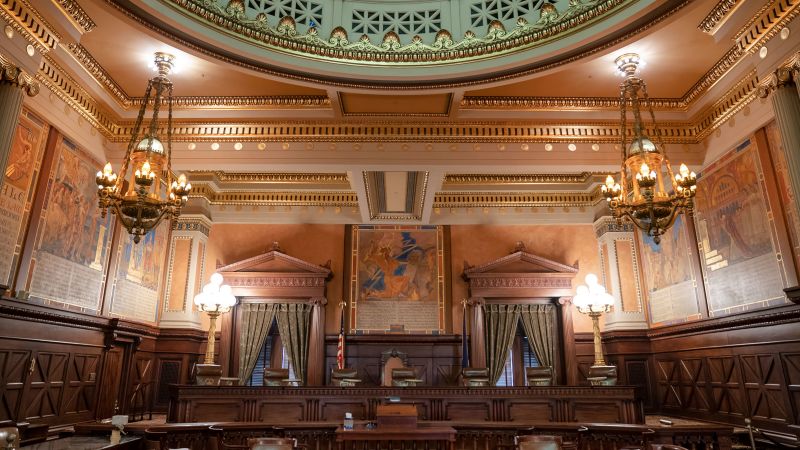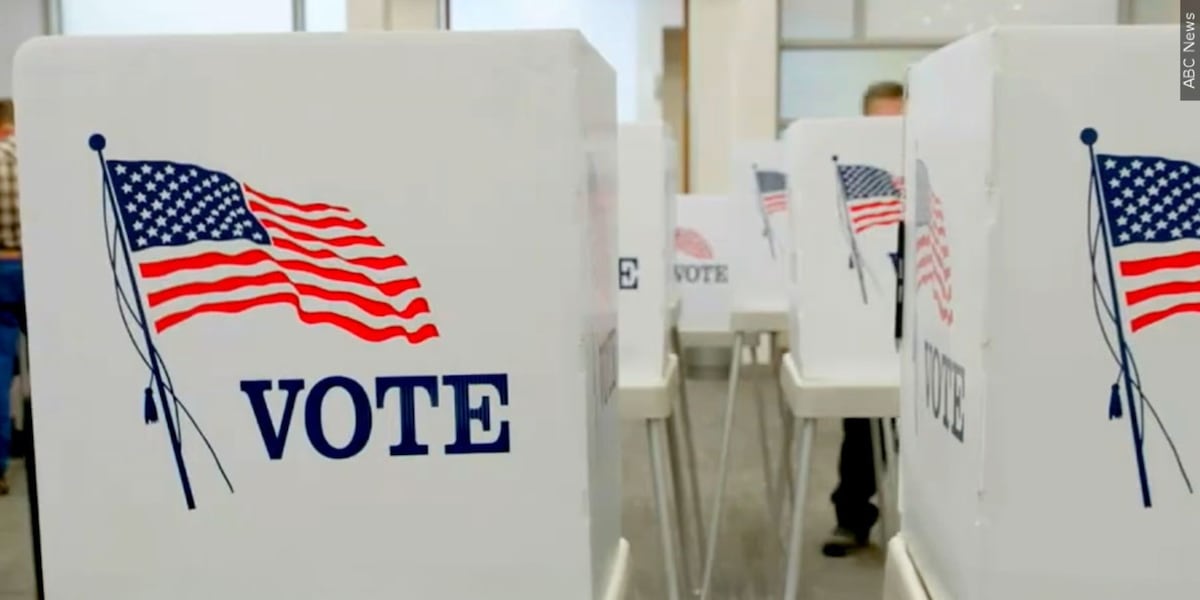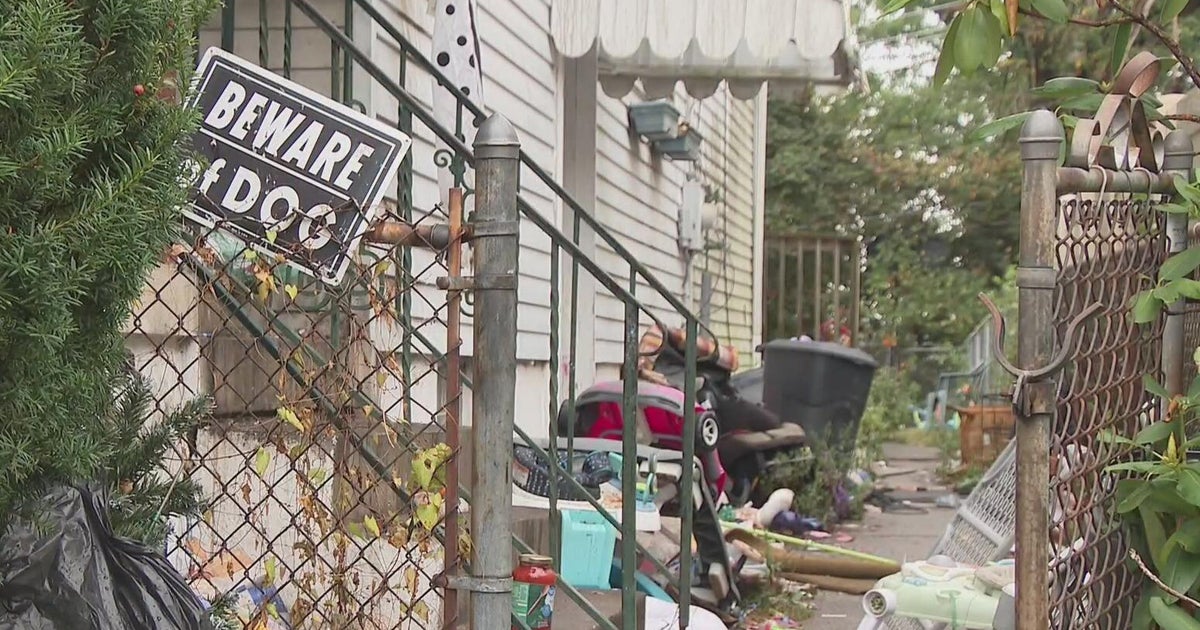CNN
—
Tuesday’s primary election in Pennsylvania will give Republican voters the opportunity to choose either a candidate for the state Supreme Court supported by the GOP establishment or one who briefly halted the certification of the state’s 2020 election results and has the backing of a key Donald Trump ally.
Political observers say the largely under-the-radar primary could offer an early test of the organizing strength of the GOP’s ultra-conservative wing in this crucial presidential battleground.
Four candidates – two Republicans and two Democrats – are vying for an open seat on Pennsylvania’s high court, following the death of former Chief Justice Max Baer, a Democrat, in 2022. Each party’s winner will advance to a general election in November.
In the GOP primary, Montgomery County Court of Common Pleas Judge Carolyn Carluccio is facing Commonwealth Court Judge Patricia McCullough. Democrats, meanwhile, are picking between Superior Court Judges Daniel McCaffery and Deborah Kunselman. McCaffery, a former assistant district attorney in Philadelphia, has the endorsement of the Pennsylvania Democratic Party.
The outcome of the race will not tip the partisan balance on the high court, where Democrats currently hold a 4-2 majority on the seven-member body, but it could narrow the gap and start to lay the foundation for a shift in power in future election cycles, experts say.
“It could create a situation where, very shortly, the partisan balance on this court could be up for grabs,” said Douglas Keith, who researches judicial elections at the liberal-leaning Brennan Center for Justice at New York University’s law school.
State supreme courts are the final arbiters on key issues, ranging from election ground rules to abortion policies. The Pennsylvania Supreme Court has upheld the state’s no-excuse mail voting law, and last year selected the state’s congressional map, breaking an impasse between the then-Republican controlled legislature and the state’s Democratic governor.
Justices on Pennsylvania’s Supreme Court serve 10-year terms. After the first election, they run in so-called retention elections without opponents.
Much of the attention in the Pennsylvania contest has centered on the GOP primary between Carluccio and McCullough, who halted certification the results – including Joe Biden’s victory in the state – in a ruling that was swiftly overturned by the state Supreme Court.
A committee tied to state Sen. Doug Mastriano – who pushed the falsehood in his failed 2022 bid for governor that election fraud led to Trump’s loss in the state – contributed $10,000 to her campaign, state records show. Last year, the Trump-endorsed Mastriano bested the Republican field to win his party’s nomination in the governor’s race. He lost the general election to Democrat Josh Shapiro by nearly 15 percentage points, and now is weighing running for the US Senate next year.
McCullough, who lost a 2021 bid for the Supreme Court, calls herself “a strict constitutionalist judge,” and touts her rulings against pandemic restrictions and the state’s mail-in voting law.
Carluccio, meanwhile, has the backing of the state Republican Party, and a national GOP group that’s active in judicial elections, the Republican State Leadership Committee’s Judicial Fairness Initiative, which has weighed in with $600,000 in advertising to boost Carluccio. A recent ad touts Carluccio’s “unmatched experience” and “unquestioned integrity.”
An earlier ad from the group highlighted a controversy that shadowed McCullough’s previous campaign for the high court: The sentencing of her husband in 2021 in a case that involved directing money from an elderly person’s trust fund to benefit political campaigns and a charity tied to Patricia McCullough.
In an interview with CNN, McCullough said she could not comment on her husband’s legal issues.
“He’s not the one running; I am,” she said.
And she described the advertising against her as coming from “Republican elites” who oppose her because “they know I will not compromise to their agenda.”
McCullough said her decisions, including one that blocked the state from taking further steps to certify the 2020 election results, show she hews closely to the state constitution. In her view, the state legislature erred in passing a no-excuse mail-in voting law in 2019, known as Act 77 – rather than putting the issue to voters to decide whether to amend the state’s constitution.
The law was passed with bipartisan support but became the target of criticism from some Republicans after it was employed in the contentious 2020 election that saw Biden flip the state. The state Supreme Court overturned McCullough’s order and last year upheld the law in a separate legal challenge.
McCullough said she respects the high court’s rulings in those cases: “They have the last say, so now it is the law of the land.”
Carluccio’s campaign did not make her available for an interview, but in a statement to CNN she said she would leave “personal and political opinions at the door and look at each case without bias and only determine the constitutionality of what’s before me.”
Carluccio said she hasn’t questioned the outcome of any election, but she said she is concerned by what she called the “conflicting, and sometimes unclear,” decisions on the state’s mail-in voting law in recent years by the state Supreme Court. (The court has weighed in on aspects of the law multiple times. In 2020, for instance, the court ruled that ballots in two counties with missing dates on the outside of the ballot return envelope could be counted. In the 2022 election, however, the court ordered that mail ballots with missing or improper dates on the return envelopes should be kept out of the count and deadlocked on the underlying legal questions.)
“Our election laws must be applied consistently across all counties, regardless of the election year,” Carluccio said in her statement. “And, when part of our electorate has concerns about the integrity of our elections, rather than dismiss their concerns, the response should be bold transparency in the administration of our elections.”
The modest Pennsylvania spending to date stands in sharp contrast to the record-setting spending that candidates and outside groups plowed into a Wisconsin Supreme Court election last month that, in the end, flipped control of that state’s high court to liberals. (A Kantar Media/CMAG analysis for the Brennan Center found that the ad spending for the Wisconsin high court seat hit $28.8 million as of early April, and some estimates put the likely final tally of all spending in that election even higher.)
Given its relatively low profile, Tuesday’s primary in the Keystone State offers a “good opportunity to get a sense of where the energy in the (Republican) party is, what segment of the party is able to get their people to go on the polls on a random Tuesday in May when there hasn’t been wall-to-wall television advertising,” said Michael Nelson, a political scientist at Pennsylvania State University, who is following the contest.
“Given that the Mastriano wing of the Republican Party was so dominant in the elections last fall, it will be interesting to see whether they can keep up that momentum or whether the standard-issue conservative wing of the party is able to rebound,” he added.
The Pennsylvania Bar Association Judicial Evaluation Commission rated Carluccio, McCaffery and Kunselman “highly recommended” and McCullough “not recommended” because she did not participate in the evaluation.






























